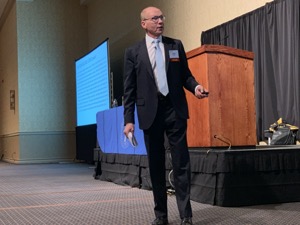
On Wednesday, March 3, 2020, Austin Mehr will be at Perry County City Hall (700 Main Street, Hazard, Kentucky 41701) to give a presentation on insurance bad faith litigation. The presentation will be worth one (1) hour of CLE credit.
This is an Advertisement















On Wednesday, March 3, 2020, Austin Mehr will be at Perry County City Hall (700 Main Street, Hazard, Kentucky 41701) to give a presentation on insurance bad faith litigation. The presentation will be worth one (1) hour of CLE credit.

When a homeowners insurance company wrongfully denies or unreasonably delays payment of a valid homeowners insurance claim, it is called acting in “bad faith.” Your homeowners insurance policy is a contract between you and the insurance company. That contract creates a special relationship between you and your homeowners insurance company that requires them to act in good faith in their dealings with you. When they play games with your valid homeowners insurance property damage claim, they are acting in bad faith.
If your homeowners insurance company has recently denied your homeowners insurance claim or cancelled your policy, below are some answers as to why and how our homeowners insurance lawyers can help.

Homeowners insurance companies sometimes raise unexpected reasons for the denial of a claim. In a case being handled by Mehr Fairbanks Trial Lawyers attorney Austin Mehr against Allstate, Allstate argued that since the insured’s son was the resident of the premise, not the insured herself, she had left the home vacant and, therefore, was not entitled to coverage for a fire loss. The court rejected this argument and granted Plaintiff’s Motion for Summary Judgment on Plaintiff’s Complaint for Declaration of Rights stating that:
“…the Court notes that the ‘where you reside clause’ as interpreted by Allstate is in direct conflict with another provision that allows Howard to vaca[te] and leave the premise for an unlimited time period.”
The Order explained:

The accident attorneys at Mehr Fairbanks Trial Lawyers frequently represent people who have been injured in accidents. Car wrecks, medical mishaps, and falls can frequently devastate a family. In those circumstances, the injured party has a right to sue the negligent person or company. The injured party can recover medical expenses, lost wages, damage to future earning capacity, and pain and suffering damages.
Below are some frequently asked questions regarding accidents. If you have further questions or you’ve recently been injured in an accident, contact one of our experienced personal injury attorneys for a free consultation today.

Austin Mehr presented at the Kentucky Law Update here in Lexington, Kentucky, on December 3, 2019 about Federal Insurance Litigation. Please be sure to visit our blog again in the future for updates to see when Austin will be giving other presentations on related topics.

The cases below, while all turning a year older this week, are still relied upon to defend insured members whose claims are handled unfairly by their insurance companies.
November 17, 1988
State Farm Mut. Auto. Ins. Co. v. Reeder, 763 S.W.2d 116 (Ky. 1988). Twenty-one years ago this month, the Kentucky Supreme Court dramatically leveled the playing field against insurance companies by their decision in this case. In this case, Reeder lived next door to the Hamptons, whose teenage son accidentally drove his car into the support for Reeder’s car port, which then collapsed. Reeder estimated the damages were $13,000, but Hampton’s insurance carrier, State Farm, refused to pay. Reeder, unsatisfied with State Farm’s offer, sued them to collect the full amount, for his attorneys’ fees and for punitive damages for violating the Unfair Claims Settlement Practices Act law.

Maintenance workers perform physically demanding and labor intensive jobs that require the ability to frequently lift heavy equipment, manually move equipment and tools, stand for long periods, bend/twist/kneel/stoop often throughout the day, climb ladders, use their hands for repairing or installing equipment or fixtures, and perform timely repairs.
According to the Dictionary of Occupational Titles, maintenance workers should be able to inspect machinery, dismantle and reassemble equipment, perform installation tasks, maintain records of maintenance, and use a variety of tools that could include hazardous equipment, handheld power tools, torches, and welding devices. It is important that maintenance workers have the ability to perform the duties safely. Some maintenance workers have additional supervisory responsibilities. The positions are typically classified as being at least “medium” in nature, requiring maintenance workers to exert 20 to 50 pounds occasionally.
In our experience, common medical conditions suffered by maintenance workers include conditions related to the physical exertion that is placed on their bodies, such as:

Nurses perform physically demanding jobs that require the ability to frequently lift heavy equipment, manually move patients, stand for long periods, bend/twist/kneel/stoop often throughout the day, provide assistance to doctors, and function quickly under demanding high-pressure situations.
According to the Dictionary of Occupational Titles, nurses are required to also perform administrative tasks, including maintaining records and checking vitals of patients. Some nurses have additional supervisory responsibilities. The positions are typically classified as being at least “medium” in nature, requiring nurses to exert 20 to 50 pounds occasionally.
In our experience, common medical conditions suffered by nurses include conditions related to the physical exertion that is placed on their bodies, such as:

Austin Mehr will be traveling around the state to local bar association meetings to present on the topic of Bad Faith Insurance Litigation in the upcoming months. His presentations will be worth one CLE credit. Attendees will receive a packet with a completed KBA Form 3, an outline of Austin’s presentation and a handout about more of Austin’s work experience.
If you are interested in having Austin come and present at your county’s bar association meeting, please contact Katelynn Nolen at knolen@austinmehr.com or at 859-225-3731.

Austin Mehr presented at the Kentucky Law Update in Louisville, Kentucky, on Friday, October 18, about Federal Insurance Litigation. Austin’s next presentation will be on Friday, November 1 in London, Kentucky, at the London Community Center.